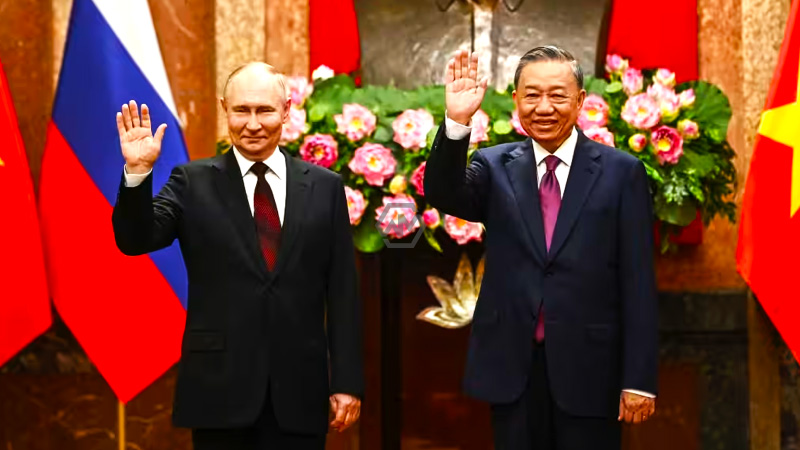- Putin signs agreements with Vietnam on education, technology, and oil exploration.
- Visit underscores Russia’s pivot to Asia amid Western isolation over Ukraine
- .Strategic pact with Vietnam aims to bolster regional security and economic cooperation.
During his state visit to Vietnam, Russian President Vladimir Putin focused on deepening bilateral ties through a series of agreements spanning education, technology, and energy sectors.
These deals highlight Russia’s strategic interest in enhancing cooperation with Vietnam, a significant importer of Russian military equipment and partner in oil exploration technology.
Putin’s Diplomatic Maneuvers: Fortifying Asian Partnerships Amid Global Scrutiny
Putin’s diplomatic engagements in Vietnam also aim to counterbalance Western pressure by solidifying partnerships with countries like Vietnam and North Korea. These visits underscore Russia‘s strategy of seeking support and economic opportunities in regions where Western influence may be less dominant, while also emphasizing its stance on regional security cooperation and non-aggression principles in the Asia-Pacific.
The visit to Vietnam follows similar diplomatic engagements in North Korea, highlighting Russia’s efforts to strengthen ties with countries beyond its traditional Western partners. These moves are part of Putin’s strategy to diversify alliances and counterbalance international isolation.
In addition to economic and technological cooperation, discussions during the visit focused on regional security in the Asia-Pacific. Both Russia and Vietnam expressed mutual interests in fostering stability and resolving disputes through peaceful means, emphasizing their opposition to military blocs and aggression.
Putin’s visit to Vietnam also coincides with growing geopolitical competition in the region, where countries are increasingly balancing relationships between major powers like the United States and China. Russia’s engagement with Vietnam underscores its role in shaping regional dynamics and maintaining strategic partnerships in Asia.
In conclusion, Putin’s visit to Vietnam highlights Russia’s proactive diplomacy in Asia, aimed at expanding economic ties, enhancing regional stability, and diversifying strategic alliances amid escalating global tensions. This outreach underscores Russia’s efforts to assert its presence and influence in the dynamic geopolitics of the Asia-Pacific region.
“Russia is signaling that it is not isolated in Asia despite the Ukraine war, and Vietnam is reinforcing a key traditional relationship even as it also diversifies ties with newer partners.”



